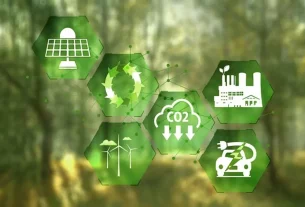This month, The Applied Ecologist is amplifying the voice of early career ecologists from around the world working in the field of applied ecology to help inspire the next generation. In this post, Fellice Catelo, a PhD student at the University of the Sunshine Coast, Australia shares her story.
My background
I’m pretty easy and chill! In my free time, I watch horror/thriller films and romcom series. Recently I developed an interest in baking, so I bake cupcakes (my specialty would be banana cupcakes)! I try to make it aesthetic so it is instagrammable.
On a lazy weekend, I read fiction books or scroll through social media and look at different cartographical maps (hehe!). When I’m feeling a bit active and adventurous, I go on hikes with my friends. But sometimes, I just go to the beach and have a little drink.

Where I am now
I developed an interest in the field of geospatial analysis and forestry as I was doing my bachelor’s degree, and realized my passion for it when I did my master’s abroad. And for my PhD, I took the opportunity to work on a large-scale reforestation project in a tropical country (my country, the Philippines).
This reforestation project is funded by the University of Sunshine Coast and is also considered as a carbon project as it aims to grow and cultivate carbon stock in the tropics to answer to global commitments for reducing carbon emissions. My work tackles methods of accurately estimating aboveground biomass of very young planted trees (0-5 yrs old), using LiDAR measurements. LiDAR is a technology that bridges the gaps in accuracy and efficiency of manual forest inventory methods, and workflows are continuously being developed to make use of LiDAR data. Despite these existing workflows, rarely have there been estimations of young trees.
Why is this project important?
This project will address gaps in accurate measurements of tree metrics and monitoring of aboveground biomass of young trees. Its importance is emphasised by the efforts to make carbon accounting accurate for climate change mitigation commitments. I aim to complete this project in three years, and if I’m lucky, to continue working on it because I don’t want it to stop with the current species that we have. I hope to expand this estimation technique to other native species in the Philippines that are rarely studied. This project will positively impact communities working with reforestation programmes as we envision easy data processing and forest monitoring operations for them to achieve targets and goals in a timely manner.

What are the next steps in this project?
In the long run, as mentioned above, I would like to expand the project to include different native species both in natural and planted forests. If given the opportunity to collaborate with other researchers that have been working on the technology, I would say it could be an immediate goal.
What has motivated you in your career?
Well, it was never in my life plans to take up a master’s or even a PhD when I was doing my bachelor’s degree. My mindset was just to finish my degree and get job. But as I navigated through my career, my jobs inspired me to grow and take further studies. Fortunately, I got a scholarship for a master’s degree in European Forestry. I wanted to learn more about geospatial technology and tools and its advanced application in forestry. From then on, I kept going. And now, I also got a scholarship for funding my PhD.

What has your career/ECR journey been like? What have you enjoyed the most?
My master’s is my turning point! I had so much fun, and excitement in this journey, and I learned a lot of things about all aspects of life. But the highlight of it, in terms of the technical aspects, is learning R Studio for geospatial systems! I am continuously learning different packages, and eventually I want to learn Python in the same way.
One piece of advice for other ECRs…
You have to really like your field and be passionate about it because there will be low points in the journey. In my experience, I just always go back to why I started this, and how much I like doing this.
Discover more posts from our ECR Journeys blog series here.

